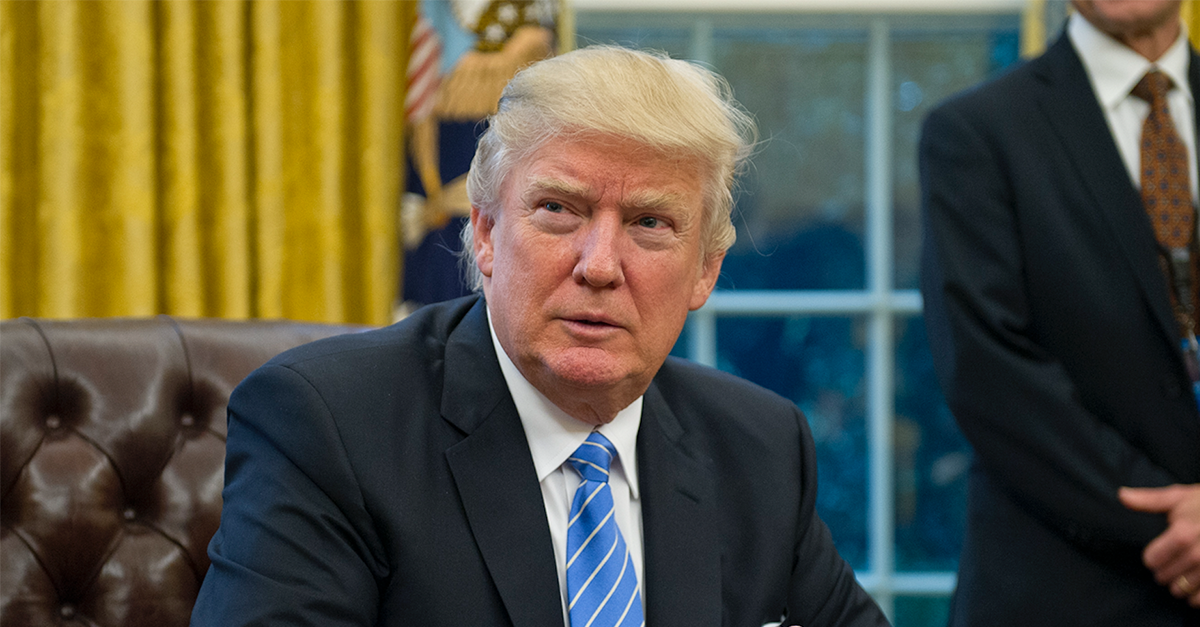President Trump is a businessman, which is what makes his approach to stemming the flow of illicit drugs from Mexico into America so baffling.
Videos by Rare
An inveterate crony capitalist who likes to boast of manipulating government in his favor, it should be easy for him to see how drug prohibition in the United States is a huge economic boon to drug cartels in Latin America.
It’s as if New York City banned the production and sale of steaks, but the people of Manhattan still had an established and voracious appetite for porterhouse. An enterprising real estate mogul might take advantage of the situation to ship steaks up from West Palm Beach, Florida, and sell them at exorbitantly high prices in New York to compensate for the risk involved in the illegal transaction.
RELATED: Neil Gorsuch, foe of the bureaucracy, is a worthy heir to the Scalia seat
If New York City reacted by building a wall around the island to keep out the steaks obligingly and profitably provided by this entrepreneur, the steak man would simply find some other way to maintain his trade. I imagine President Trump understands this.
Perhaps he would use a plane. Or a tunnel. Or — well, you get the idea. And if his business prowess is anything like he describes, Trump would too.
But Trump’s border wall plan suggests otherwise. Of course, the primary purpose of the wall, which is allegedly going to begin construction within a few months, is not about drugs. It’s about immigration, along with the Trump administration’s conception of national culture and sovereignty.
Still, the drugs have always been part of the rationale. “I want to build the wall. We need the wall,” Trump said during his campaign. “We stop the drugs. We shore up the border.”
His top aide and spinmeister Kellyanne Conway claimed just a few days ago that Mexico opposes the wall “because they want to continue to allow people and I assume drugs, since they’re not doing much to stop that, pouring over our borders” — so clearly the drug aspect is still very much part of this wall agenda.
The trouble is that it won’t work. If anything, the wall will unintentionally benefit the drug cartels and foster their violence, as Eric Boehm explains at Reason:
Instead of increasingly militant and expensive measures designed to stop the flow of drugs, [drug war journalist David] Bienenstock told Reason in an email interview this week, Trump should be backing the legalization of marijuana, which has already begun to cut into the drug cartels’ profits while creating American jobs.
“It’s important to understand that the Drug War created the cartels, not the other way around,” says Bienenstock. “We’ve been wasting trillions of dollars for nearly 50 years on wholly ineffective, and even counterproductive, efforts to stop the flow of drugs into the United States, and those efforts have only made the cartels bigger, stronger, and more dangerous.”
What would work? Shutting the drug war down once and for all:
The less expensive, more effective way to reduce the flow of drugs over the border is loosen drug laws here in America. In fact, liberalized marijuana laws in some states are already having an effect. The Washington Post reported in March that “marijuana seizures along the southwest border tumbled to their lowest level in at least a decade.”
Trump himself is a teetotaler, and his attorney general pick of Senator Jeff Sessions does not bode well for criminal justice reform issues under his administration.
RELATED: Trump’s Homeland Security pick says legal marijuana makes it harder to fight the War on Drugs
Still, as a businessman, the likely outcome of the wall for the drug trade — and especially cartel violence — should be clear.
“The only law that cartels do not break is the law of supply and demand,” notes Paul Kan at War on the Rocks. And “as new barriers along the border increase risks for the cartels,” he adds, “they will innovate smuggling operations, raise their prices to keep profits flowing, and stimulate new domestic markets in Mexico and on the U.S. side of the border.”
We know this, Kan added, because the same sort of “adaptations occurred after 9/11, the last time the United States seriously tightened its border security.” Trump should know, too, if he’s even half as good at business as he says.



